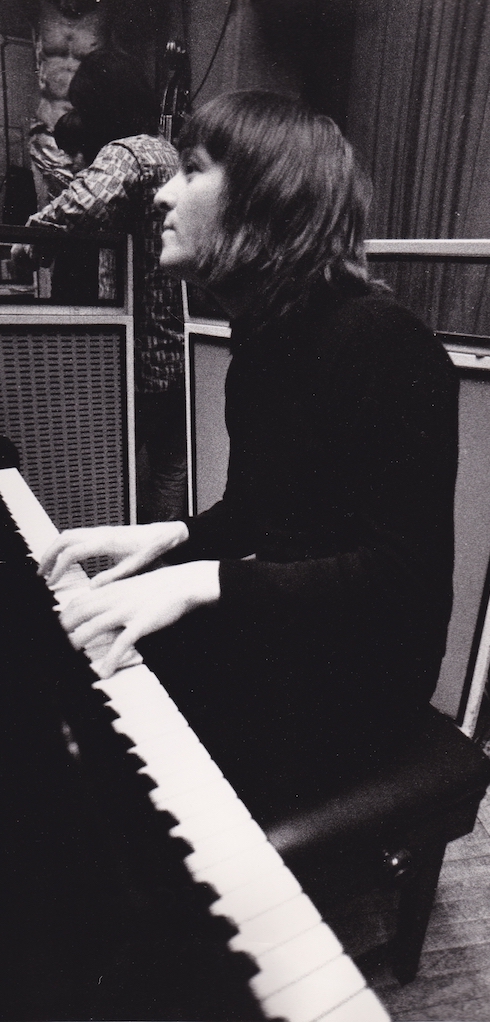The first time I heard Howard Riley was at Conway Hall last winter where he played, among other things, a very memorable ballad with an oft-repeated passage. I heard no more of him until I happened to drop in on one of his infrequent gigs at the 100 Club recently. His music made an equally strong impression on me. With Barry Guy (bass) and Alan Jackson (drums), Riley generated several stimulating and comprehensible constructions, one after another.
One thing does not sound like another. Solos are not interchangeable
Form is more an integral consideration in Riley’s music than in just about any other English group I know of. Each piece has distinctive characteristics – simple repeated melodic lines, sharply varied dynamic thrusts, textural patterns – which are developed thoughtfully throughout its duration. One thing does not sound like another. Solos are not interchangeable. While the tune-solos-out format is eschewed, things sound more carefully worked out than in the usual free-form group. It must be painstaking rehearsal as well as intuitive empathy that gives them so much freedom and flexibility on each individually conceived number.
I liked the sound enough to make it over to the Albion Club the following night. In the long, darkish pillared space with a tiny bar in an adjoining room, a small, attentive (glory be!) crowd and a fireplace as sounding board, he was able to stretch out two leisurely sets and travel purposefully over some very interesting material.
Nearly every number had kernels of effective repetition to recommend it, moments of immediate familiarization which springboarded collective explorations. Both sets opened with the only non-originals: Miles Davis’ Nardis, which I missed, has a typically distinctive line and chord structure, and one of Carla Bley’s many simple and effective compositions, a descending riff with guts called Blood, was startlingly prefaced with a long, loud free bash, very dramatic in context.
A good Latin theme is Guy’s The Day Will Come with its unison chromatic upsurge at the end of each phrase hanging inquisitively. Deeper is another, but wilder. Schubert found a niche in jazz with Riley’s solo on Meanwhile; Bartok crept in elsewhere. Why not? It works. Alan Jackson shaded dynamics subtly and with great inventiveness, anticipated smoothly. Guy’s work was overwrought and rather flaccid, but his arco was more taut and articulate. All in all, an exciting trio – hardworking, talented, ambitious, branching out.
The Albion, by the way, is a recently established haven for avant-garde aficionados, currently meeting Thursdays upstairs at the King’s Head, next to the Fulham Broadway tube. The maitresse is a determined redhead named Janice Christianson who, in the face of dwindling resources, maintains her belief that good young jazz musicians deserve a chance to do their thing regularly before an audience. If you agree, go. Bring friends. The autumn roster includes: Mike Osborne Trio, Alan Wakeman Band, Keith Tippett’s Group.
















